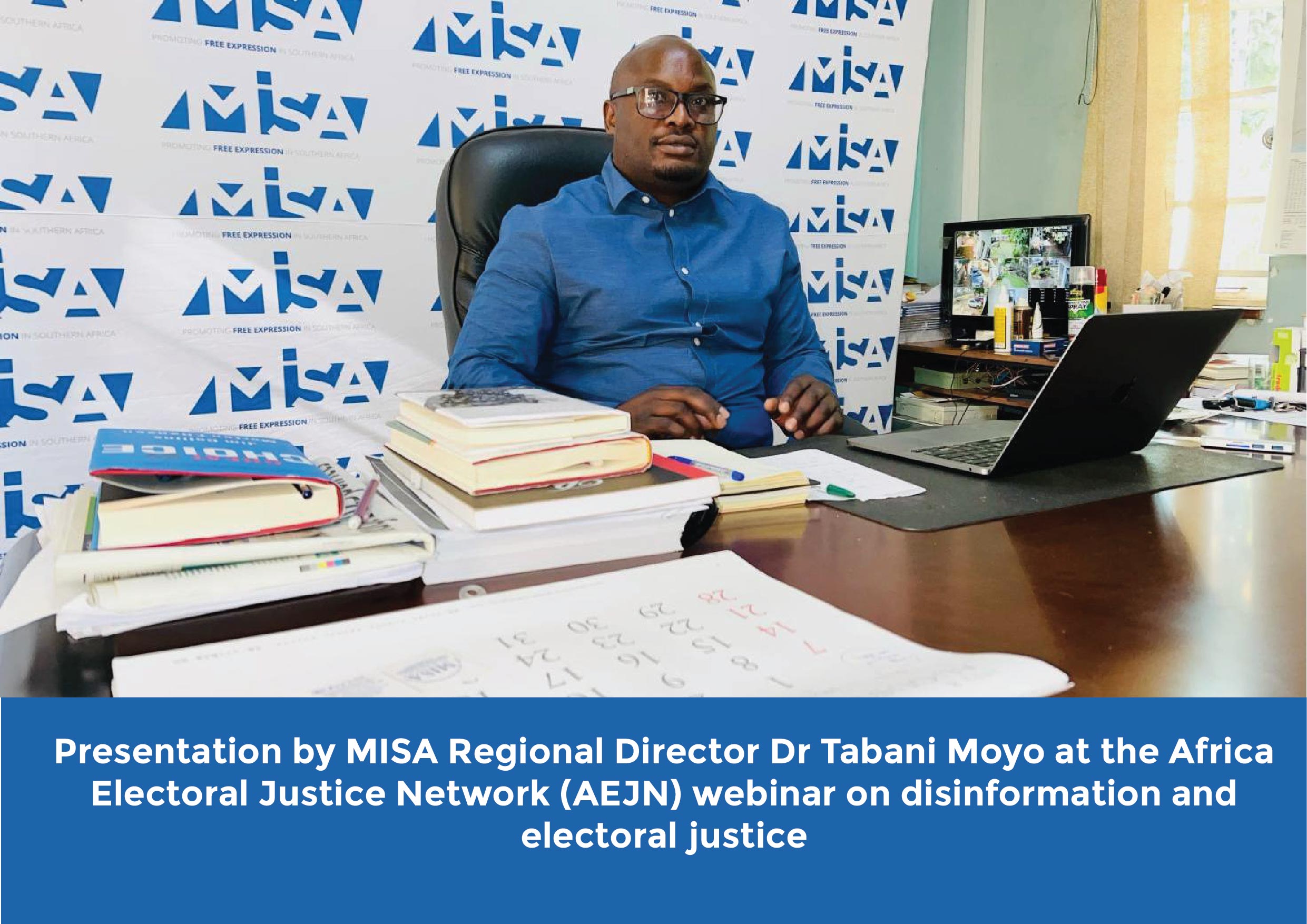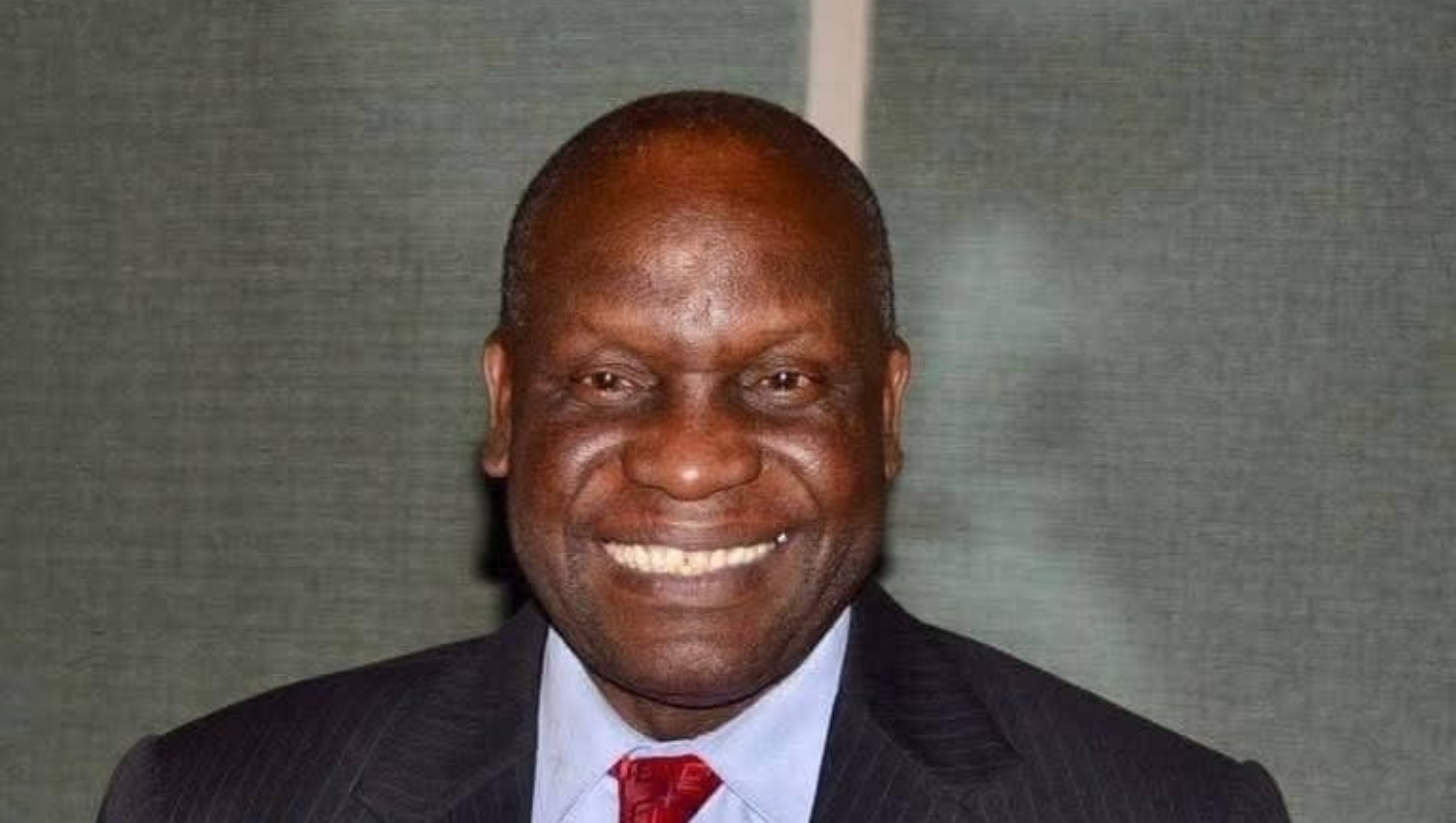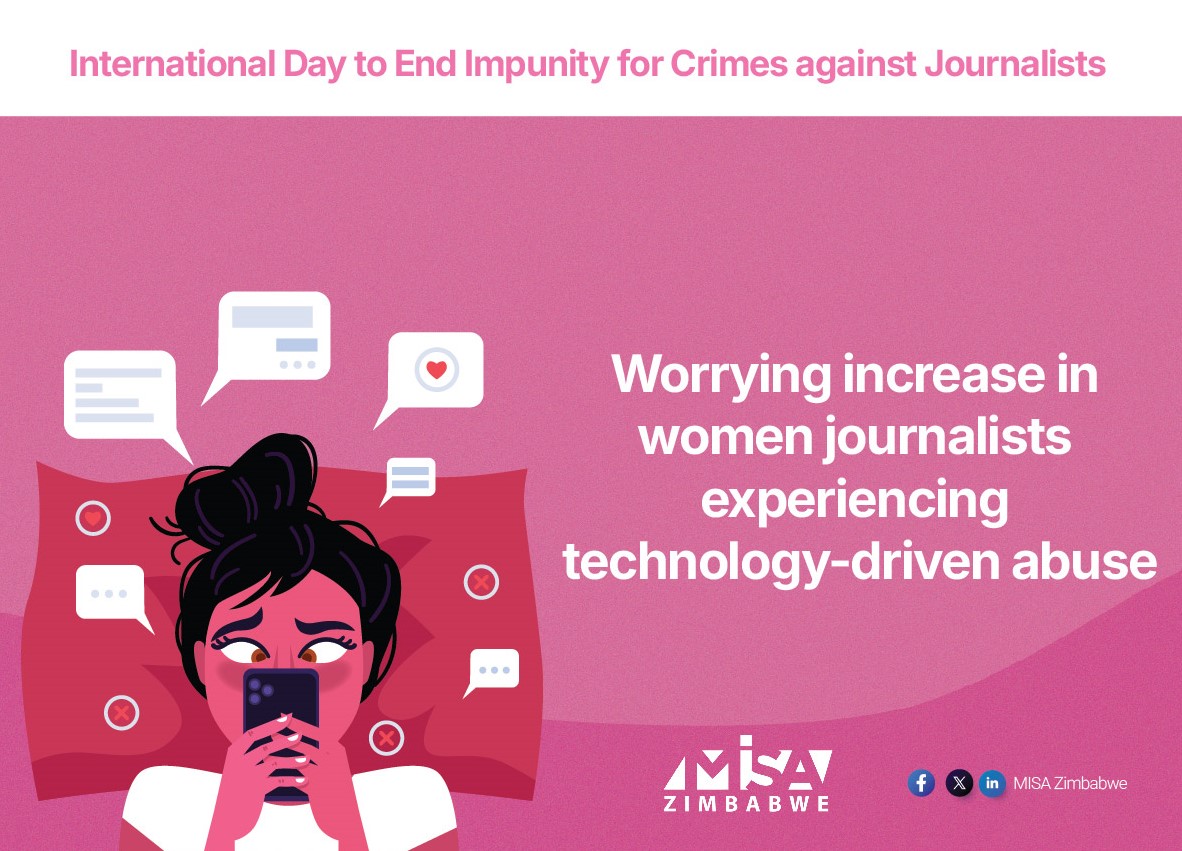My Lords, My Ladies, and representatives of the Electoral Management Bodies (EMB), it is a great honour for MISA to engage in this august meeting on the relevant topic of disinformation and electoral justice, especially in our region of Southern Africa, which has a total of 10 elections in 2023 – 2024 in one form or the other.
I will start with the theme of the Windhoek Declaration +30 – Information as a public good. With this in mind, we push forward the main argument that electoral management bodies (EMBs), have a critical responsibility as custodians of elections.
If EMBs proactively disclose information, that assists in mitigating the challenges of speculation.
Once the EMB is credibly viewed as contributing to a democratic process, there is a better chance of developing stakeholder guidelines that will bind the players during election processes.
It has been noted that we cannot have genuine elections without having a free flow of information. When disinformation is targeted at electoral processes, it can undermine the very foundations of democratic governance.
Political parties and electoral candidates have adopted new information dissemination strategies, using social media platforms to amass thousands of followers. Thus, Information moves from local to national and international news much faster than ever.
Electoral justice systems need to address the challenges posed by disinformation effectively. This includes developing mechanisms to identify and remove disinformation from online platforms, promoting media literacy education, and holding those who spread disinformation accountable.
Disinformation can undermine electoral justice in the following ways:
- Manipulation of public opinion – to mislead voters and their decision-making, leading to outcomes that do not accurately reflect the people’s will.
- Misinformation about voter registration and voting procedures – can result in many voters being disenfranchised.
- Erosion of trust – in electoral institutions and democratic processes
- Polarisation – amplifying extreme viewpoints and creating a climate of distrust. Ethno-religious and political fault lines become entrenched by disinformation.
- Strategic deployment of false, exaggerated information – in the electoral environment has been a potent tool for undercutting democratic principles in many places worldwide. Blurred lines between truth and fiction cause voter confusion and devalue fact-based political debates.
- Misinformation exacerbates the potential for electoral-related violence and aids the entrenchment of authoritarian regimes.
- Suppression of voter turnout – among specific groups of voters.
Recommendations
Electoral justice systems need to be able to adapt to the ever-changing nature of disinformation. This includes developing new tools and technologies to identify and remove disinformation, as well as working with various stakeholders such as social media platforms, civil society, governments and online intermediaries to address the spread of disinformation.
Some of the steps that electoral justice systems can take to address the challenges posed by disinformation:
- Develop clear and concise guidelines for what constitutes disinformation.
- Invest in fact-checking and verification efforts – fact-checking and content moderation by media houses to curb the spread of false information.
- Partner with social media platforms to remove disinformation from their platforms. Social media platforms should raise awareness among users about how to report disinformation.
- Educate the public about disinformation and how to identify it.
- Hold those who spread disinformation accountable for their actions.
- Proactive information disclosure by the relevant election management bodies.
- Tackling online disinformation requires nations to address broader challenges, such as insecurity and a lack of trust in government officials/departments. At the same time, online information can be used to clarify facts; this can promote transparency and accountability with the government department.
The presentation was submitted online on the 23rd of November 2023












